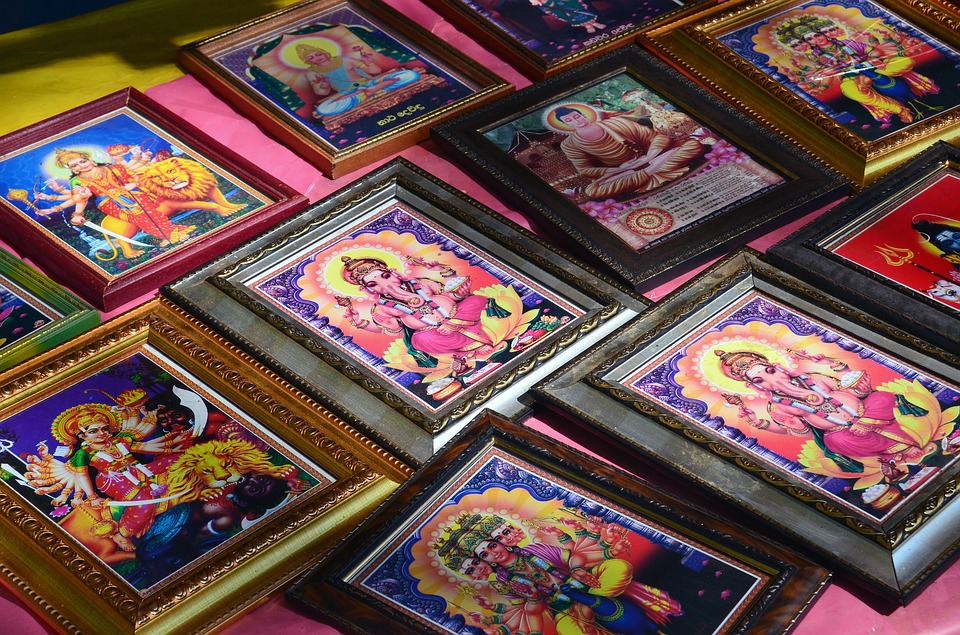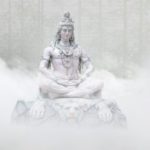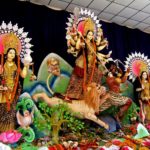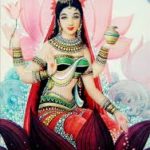The phrase ‘INDIAN GODS‘ just indicates the fallacies that surround the concept of the almighty power of the universe, confusing the many forms in which humans attempt to perceive god, as separate and different from each other. Just like ‘Hinduism’ is actually a perception of foreigners about Indian spiritual thought, and understood as ‘religion’ (in the way Christianity and Islam exist) instead of ‘dharma’ (literally meaning ‘duty’), the religious philosophy of understanding one’s own self, the society and the universe with the objective to find the right path for oneself to proceed in the journey of life. In the same way, the many forms in which people try to perceive and worship the almighty is often confused with the existence of many gods.
Though it may sound a little complex to those who do not understand it enough, the question about god being one or more than one itself is fallacious, for ancient Indian belief considers god is omnipresent and eternal. Those who is always present everywhere can not be counted. It exists even within ourselves. Then why worship it outside? Because even though it exists within us, we are not the same as him, for we ourselves are just a small mortal existence, full of imperfections, while he is perfect. Then why so many gods and goddesses? Actually, because he is everywhere, so he can be worshiped in any of the forms, be it that of a human being, imaginative or real, an animal or a tree, air or water, a book or just an abstract concept, or even your parents, teachers or ancestors. All of those forms, in some way, denote the presence and existence of god.
The Almighty Master of the Universe
One of the basic characteristics of almighty master of the universe in ancient Indian philosophy is that it is too vast and complex, far beyond the imagination and comprehension of human beings. That is why the need to feel and sense it in forms we can perceive. Those who are knowledgeable may be able to understand some of the complexities and appreciate the abstractness of the concept, but for ordinary folks, an easier way is to have an anchor to focus their devotion.
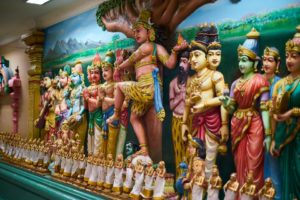 Just like a passionate lover would cling on to a small insignificant gift of his loved one, in her absence, though it is not that article that is the focus of attention, similarly a devotee will use a form of god, perceived by him as divine, to concentrate his devotion to the almighty. Thus, as many people…as many forms of worship….of the same almighty that prevails everywhere. Sometimes it is a god, other times goddess, a reminder that sex has nothing to do with the presence of divinity. That who is present everywhere can be present anywhere, and so even animals and trees may be the reminder of his presence to his devotees.
Just like a passionate lover would cling on to a small insignificant gift of his loved one, in her absence, though it is not that article that is the focus of attention, similarly a devotee will use a form of god, perceived by him as divine, to concentrate his devotion to the almighty. Thus, as many people…as many forms of worship….of the same almighty that prevails everywhere. Sometimes it is a god, other times goddess, a reminder that sex has nothing to do with the presence of divinity. That who is present everywhere can be present anywhere, and so even animals and trees may be the reminder of his presence to his devotees.
Another reason why there are so many forms for worship is the belief that the almighty get everything done by the use of ‘means’. Everything in this world is a ‘means’, a medium for fulfilling what he has already ordained and destined. Thus all the ordinary people and things around you are actually ‘means’ through which he gets everything done. If one reads Bhagvadgita, the centerpiece of ancient Indian philosophical beliefs, one would understand that actually the one who gets everything done (karta), the act that gets done (karma), and its effects are one and inseparable from the almighty himself.
There can never be any possibility of multiple gods.
In a philosophy that leaves no scope for division or separation of divinity, there can never be any possibility of multiple gods. Time and again, since ancient times, the actual underlying philosophies get covered by the ignorance of those who neither care to learn, nor wish to understand, only to be redeemed by people like Shankaracharya, the great philosopher of 7th century and Vivekananda, the great philosopher of late nineteenth century. This ignorance makes many talk about the multiplicity of gods.
May God help them get out of their fallacies.

